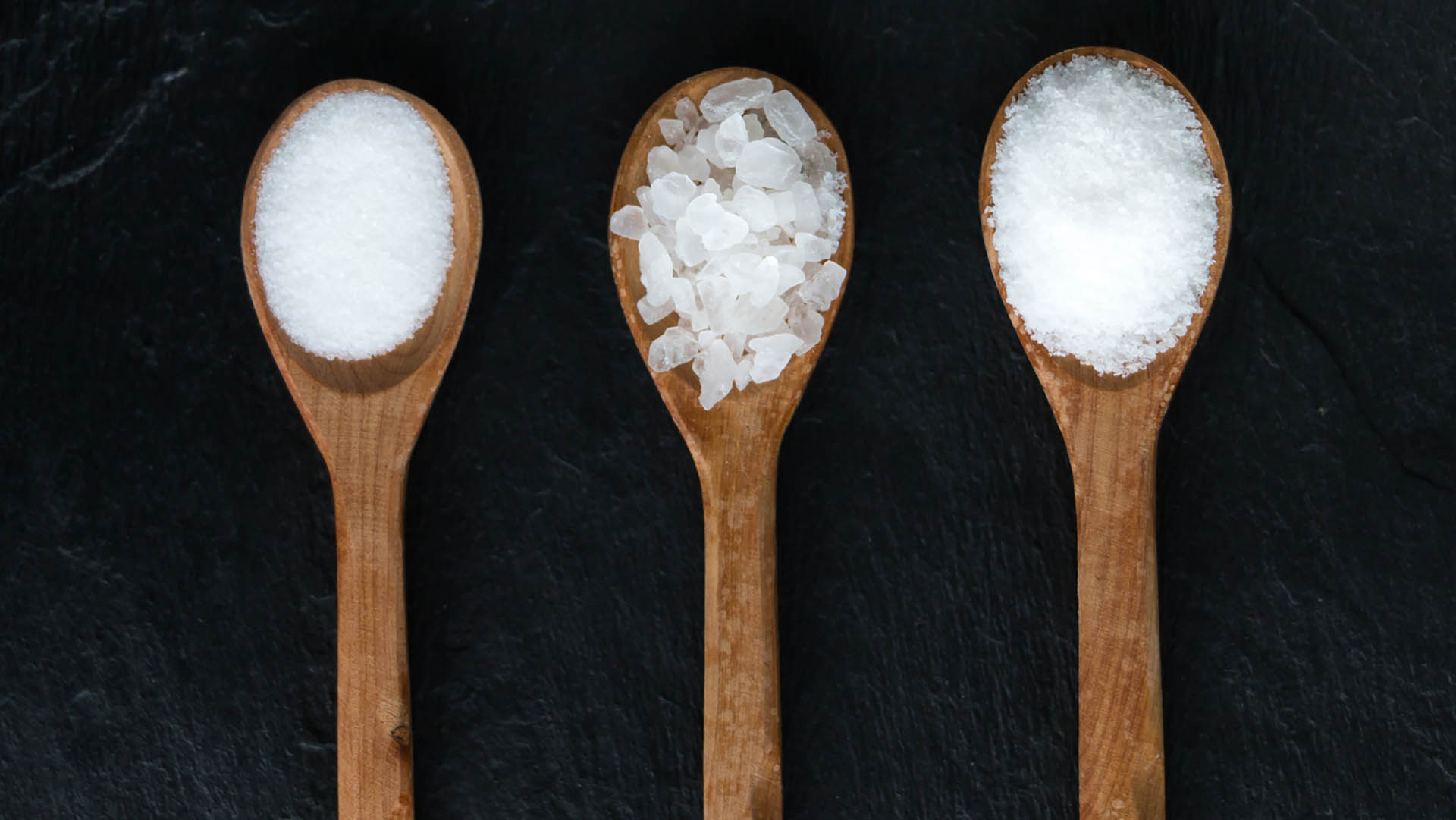Does It Matter Which Type Of Salt I Use In Recipes?
Some recipes specify kosher salt, or canning salt, or sea salt in their ingredients list. But when you're stirring a hot pan while attempting to read a recipe on your phone and hold a semi-coherent conversation with your friend in the kitchen—it's tempting to just grab the nearest shaker of table salt. It's still salt, you might think, does it really matter what type I use? According to the experts, yes and no.
Baking requires precision, which is why you'll want to follow the recipe's salt suggestion to the letter, according to Caitlin PenzeyMoog, Takeout contributor and author of On Spice: Advice, Wisdom, And History With A Grain Of Saltiness. She says salts vary in texture—think of how much coarser kosher salt is compared to fine table salt—meaning a tablespoon of one may not be equivalent to a tablespoon of the other. Weighing ingredients helps alleviate this disparity, but if a recipe gives its measurements in volume, follow the specified salt, if possible. If the baking recipe doesn't specify a type of salt, you'll just have to use your preferred type.
For other cooking applications like roasting vegetables or seasoning a dish as you cook, kosher salt should generally be your go-to. Its wider surface area means it melts over food more evenly, and is easier to distribute with your fingers versus a shaker.
"If your fingers are lightly damp, even if there's anti-caking agents in table salt, it'll stick to your fingers or get lumpy and some areas of the food will get clumps of salt," Jack Campbell, a chef instructor at Chicago's Kendall College culinary school, tells The Takeout. "Because kosher salt is coarser, you can see the kosher salt on a steak, so you can see if there's too much or too little in certain areas."
Campbell explains that the anti-caking agents in certain brands of table salt can also create a slight cloudiness in delicate dishes such as consommés, and that some cooks with very discerning palates can actually detect the iodine that's added to table salt. Because of that, he says, kosher salt is preferable as a default cooking salt; PenzeyMoog agrees.
"I personally just use kosher salt for 95% of what I'm baking and cooking," she says. "Kosher salt has a really nice texture you can pinch between your fingers. You actually need less of it when you're using it at the table because it does distribute very evenly."
PenzyMoog compares table salt's texture to a small piece of ice—"It sort of bounces around and melts right where it hits, and melts not very effectively"—whereas kosher salt is like a snowflake, melting all the way down to more evenly cover your food.
What about seasoning your final dish, either at the table or right before serving? That's when you can break out your stash of pink Himalayan salts, black salts, smoked salts, flavored salts, giant Maldon crystals, etc. Flavored salts contribute, well, flavor, so it's best to save those to season the final dish once you've tasted all its existing balance of flavors. The same is true of brittle, wide salts like Maldon or fleur de sel, which PenzyMoog says are more likely to sit on top of your food without melting, adding crunchy texture as well as salinity to each bite of beef tartare or fancy bread with butter. Sea salt, she says, is a nebulous term that doesn't have any regulation or precise definition, so it could be mined or dried from salt water in a traditional way or could be created via sped-up factory processes. There's hardly any way to know, as a consumer, so only pay top dollar for it if you really enjoy its texture or flavor.
It's easy to be tempted to splurge on gourmet salts with beautiful crystal structures and gemlike hues and interesting flavors. And if you like the way they make your food taste, go for it. But on those days when you're rushing around the kitchen, struggling to get dinner on the table while the phone rings and the oven beeps and the dog's barking for your attention—don't sweat your salt choice.
"95% of all salt is sodium chloride, and less than 5% differences are whatever other minerals or algae are present," PenzeyMoog says.
Bottom line: For most culinary applications, use kosher salt if you have it. But if not, whatever's at hand is better than no salt at all.
